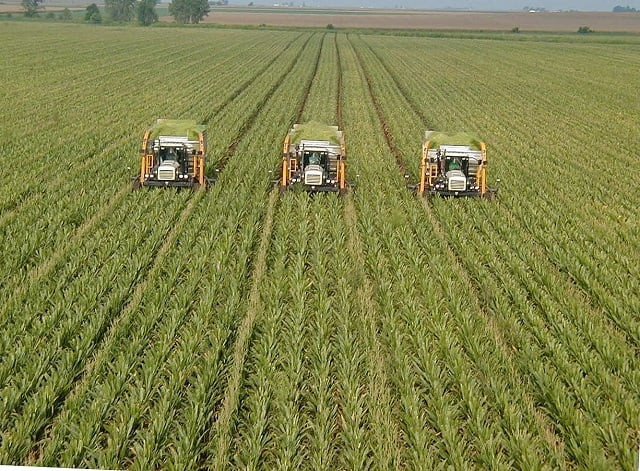Agri-growth stagnant at 2.2 to 2.6% in 15 years
Despite government involvement, wheat yields stagnated to 3 tonnes per hectare

The State Bank of Pakistan (SBP)’s recently published Agriculture report 2023, launched by Pakistan Business Council (PBC) and Pakistan Agricultural Coalition (PAC), showed that agriculture growth during the last 15 years in Pakistan has been restricted within the range of 2.2 to 2.6% per annum as the industry and services have driven the country’s economic growth.
“Wheat yields have stagnated close to three tonnes per hectare (30 maunds per acre) when progressive farmers within Pakistan are achieving 4.5 tonnes per hectare and other countries are achieving even more,” stated the report.
Despite so much government involvement in the production of wheat, no serious investment in wheat seed development, mechanisation, storage and processing stands on the ground.
The report showed that a sharp contrast exists in the maize and rice crops as well. With hardly any government intervention, maize yields have tripled over the past two decades completely on the steam of the private sector, while rice exporters have brought high-yielding hybrid seeds to the farmers and invested in mechanisation.
Within the agriculture sector, the livestock sector (mainly dairy and poultry) has driven agricultural growth while the five major crops, namely wheat, cotton, maize, sugarcane, and rice, have held sector growth back by growing at around 1.1% per annum in real terms for nearly two decades.
The report outlined that these five crops are taking a majority of Pakistan’s agricultural assets (land, water, labour, etc.) and not delivering what Pakistanis deserve in growth and prosperity while among ‘other crops’, mainly fruits and vegetables, there has been erratic but slow growth during this period. As a result, Pakistan’s food trade balance was a deficit of $3.6 billion in the financial year 2022 the report mentioned.
On the other hand, just three crops (wheat, rice paddy, and maize) have a farm gate value of about $12 billion, of which, nearly $1 billion is lost in quality and quantity due to traditional drying practices, sub-optimal warehousing, unfair market practices, and traditional logistics.
“Agriculture’s business model has to be changed from government-driven to private sector-driven, from rigid to entrepreneurial, from traditional to technology-based and from patronage to global competition,” suggested the report.
Published in The Express Tribune, March 21st, 2023.
Like Business on Facebook, follow @TribuneBiz on Twitter to stay informed and join in the st conversation.



















COMMENTS
Comments are moderated and generally will be posted if they are on-topic and not abusive.
For more information, please see our Comments FAQ